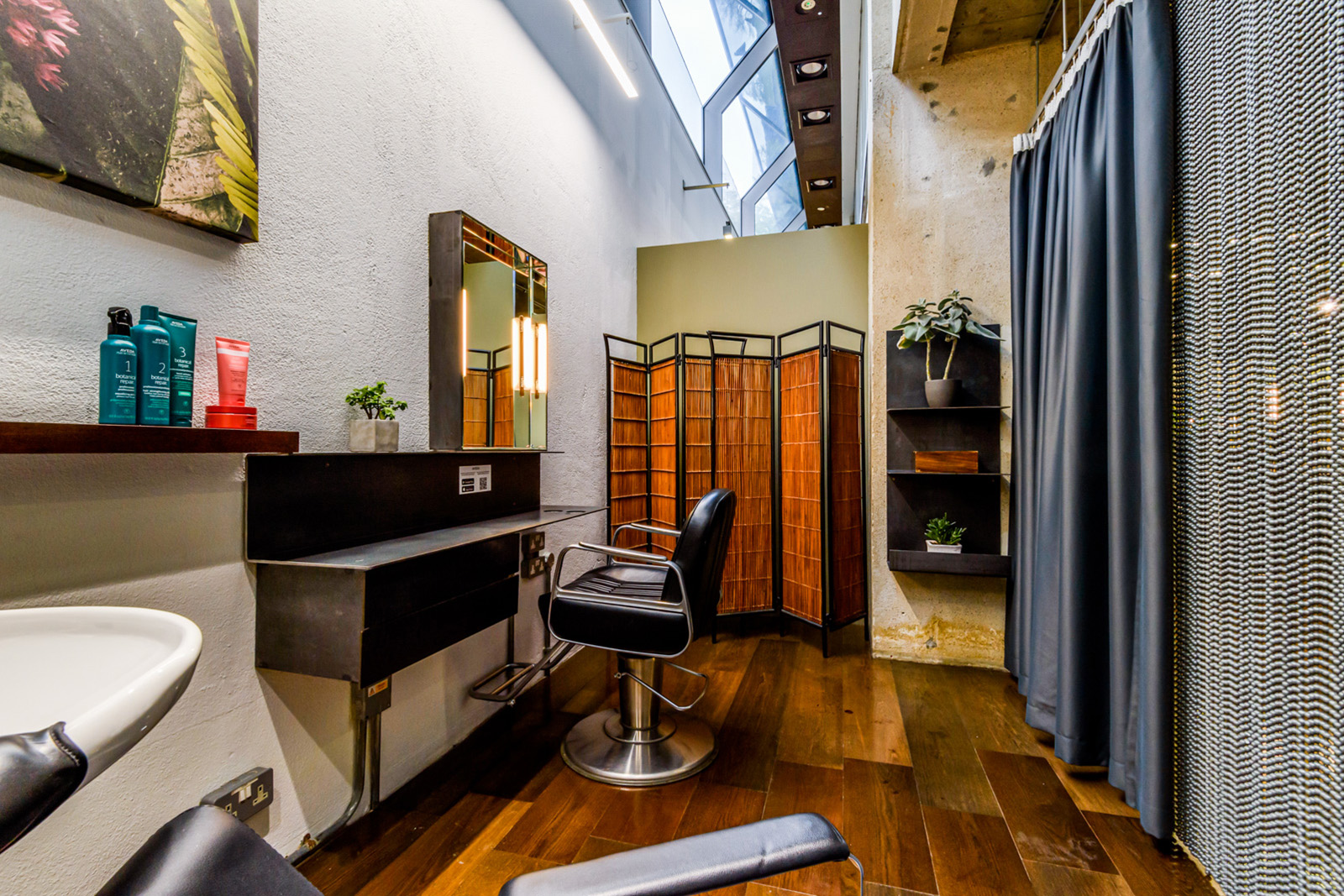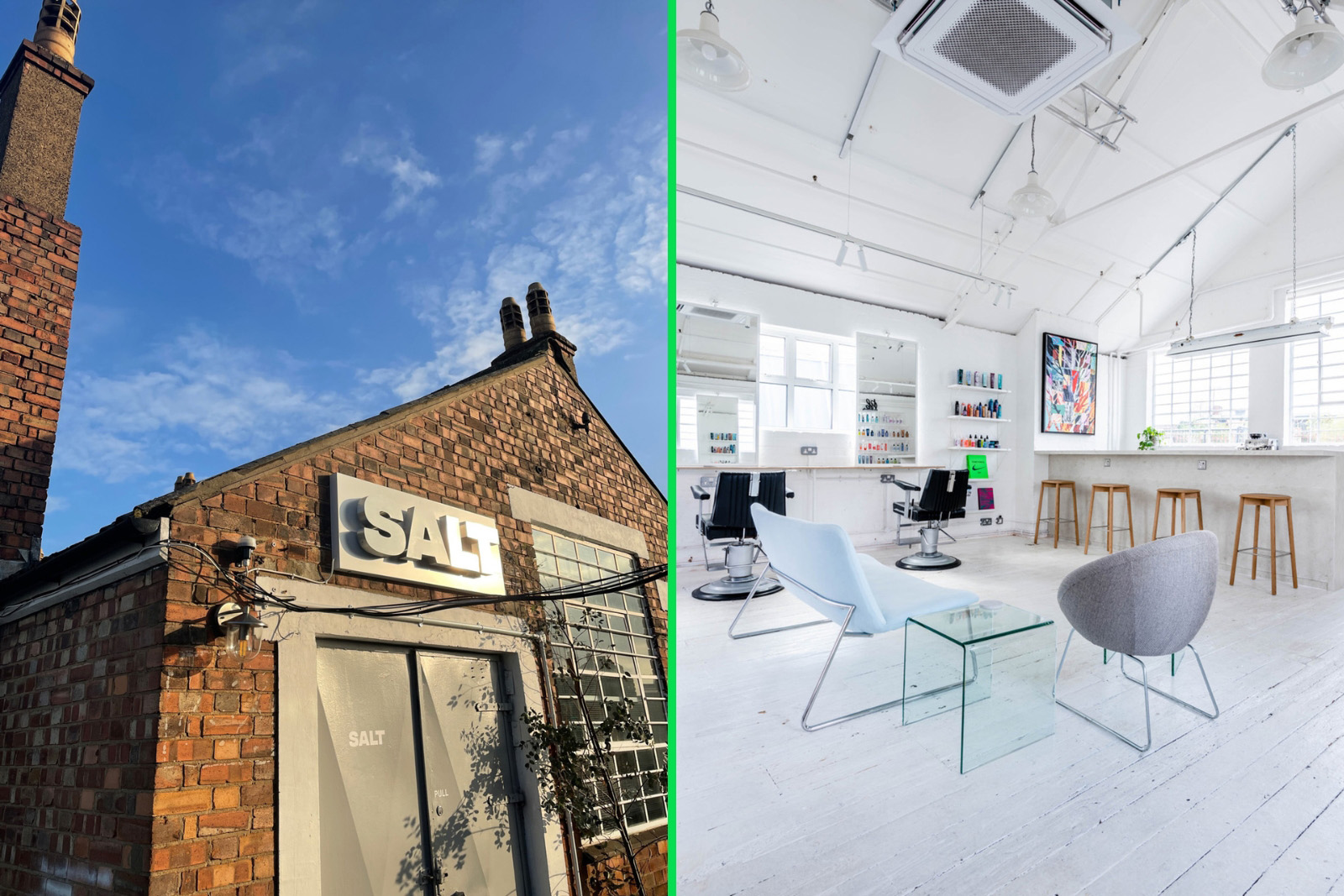High-end hijab-friendly hair salons are finally here
The days of hijabis having to choose between protecting their modesty or getting their hair done in a quality salon seem to be over
–

Growing up as a curly-haired hijabi in London during the early 2000s, very few things instilled a sense of dread in me more than the prospect of a haircut. For most women, a trip to the salon carries connotations of pampering in chic spaces with floor-to-ceiling windows. But for me, and many other hijabis, it involved my mum leading me through the main part of a local hairdresser’s to a windowless back room cordoned off with curtains clearly intended to be used as a storage closet.
Here, a woman — who my mum had heard about through a hijabi grapevine — would ignore any vision I had for my hair and proceed to chop off as much as she could before I started crying. My only other option was sitting on a stool in our bathroom as my mum did the same, until I started crying. Needless to say, neither of them ever had any idea about how to cut or style curly hair.
Despite the UK being home to nearly 4 million Muslims, this experience is still far too common for women who wear the hijab. Hijabi women have traditionally been excluded from mainstream beauty spaces and left to rely on local, specialist establishments that often sit on the lower end of the glam spectrum, or rely on home visits.
In an age of inclusivity, where companies are bending over backwards to ensure no demographic is excluded from their business, hijabis have always seemed to be the exception. But things do seem to be finally changing, with a range of high-end salons across the UK, from Aveda in London to Melissa Timperley Salons in Manchester, adapting their practices to accommodate the needs of this long-overlooked cohort.
An email early this year from a hijab-wearing woman interested in booking an appointment led Iona Mathieson, operations director at SALT Salon in Dalston, east London, to re-evaluate the services on offer. “We’re based in Hackney which has a huge Muslim population, and to not be catering to such a huge proportion of our local community felt like a huge failure,” she says. “We have always strived to be a salon for all hair types, textures and people, but how could we hold ourselves true to that if we weren’t catering to hijabis?”
The salon now opens one Sunday a month specifically for Hijabi women, offering a tailored soft drinks list. All alcohol is removed from the fridges and bar area on these days. Clients are welcome to bring a friend or relative along with them for comfort, and music is paused at prayer time with space made for those who wish to pray.
SALT’s location — on the rooftop of an old warehouse where you have to be buzzed up via an intercom — lends itself perfectly to the needs of hijabi clients. “By virtue of where our salon is it’s already semi-private, you can’t just walk past it on the street. We have a few frosted windows which still let in natural light, giving the space a lovely lightness, however on all non-frosted windows the blinds are drawn,” adds Mathieson.

Hunter Collective, a co-working beauty space founded to help women work around childcare, has also begun offering hijab-friendly appointments at their central London branch in the last few months. “I noticed that my friends, some of whom were turning more towards their religion and embracing the hijab, would complain about how hard it was to get their hair done here,” explains Liz Hardy, director of locations at the company, who grew up in Kuwait and Tunisia.
“When I was in Tunisia, you would have women-only salons, whereas here beauty spaces that hijabi women can feel totally comfortable in don’t really exist — there are of course specialised places in Muslim-majority areas, but generalised high street salons or brands don’t do that.” Prospective clients can contact the salon to request a hijabi-friendly appointment, be assigned a female stylist who is specially trained and aware of the client’s specific needs, and allocated a private room. Clients can also book in directly with the stylists outside of the salon’s normal opening hours for added privacy.
High demand from their hijabi clientele inspired Muslim-owned salon Beauty Kulture to expand the business to include two branches in north London specifically for hijab-wearing women. “In the Muslim community, we’ve always recognised the need for more inclusive options in the vast beauty salon industry,” explains Aba Ahmed, co-founder of the salon. She adds that making their salon more inclusive “is not just about business; it’s about respect, and supporting the personal and religious choices of our clients”. Both salons are specially designed for hijab-wearing clients, employing female-only staff and equipped with prayer mats, allowing clients to pray during service times if they wish.
Larger luxury brands also seem to be waking up to the potential of the untapped hijabi beauty market, whether driven by a genuine desire for greater inclusivity, or by industry reports that project the global halal cosmetics market will be worth £38.26bn in 2024. Aveda’s flagship store in Covent Garden recently opened a Privacy Suite for hijab-wearing clients, and Harrods’ glamorous fifth floor Hair and Beauty Salon also offers a fully private area — although with prices starting at £125 for a cut and blowdry, it’s probably safe to say the target demographic here is not the average Muslim woman but rather Harrods’ ultra-wealthy Gulf Arab clientele.
The days of hijabis having to choose between protecting their modesty or getting their hair done in a contemporary salon by stylists who understand their specific needs seem to be drawing to a close. It may seem small, but for a demographic that is often forgotten about or purposefully ignored, it’s undoubtedly a step in the right direction.
Topics
Get the Hyphen weekly
Subscribe to Hyphen’s weekly round-up for insightful reportage, commentary and the latest arts and lifestyle coverage, from across the UK and Europe
